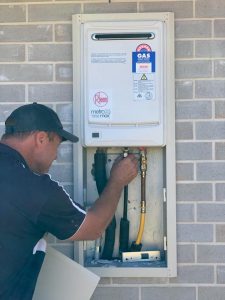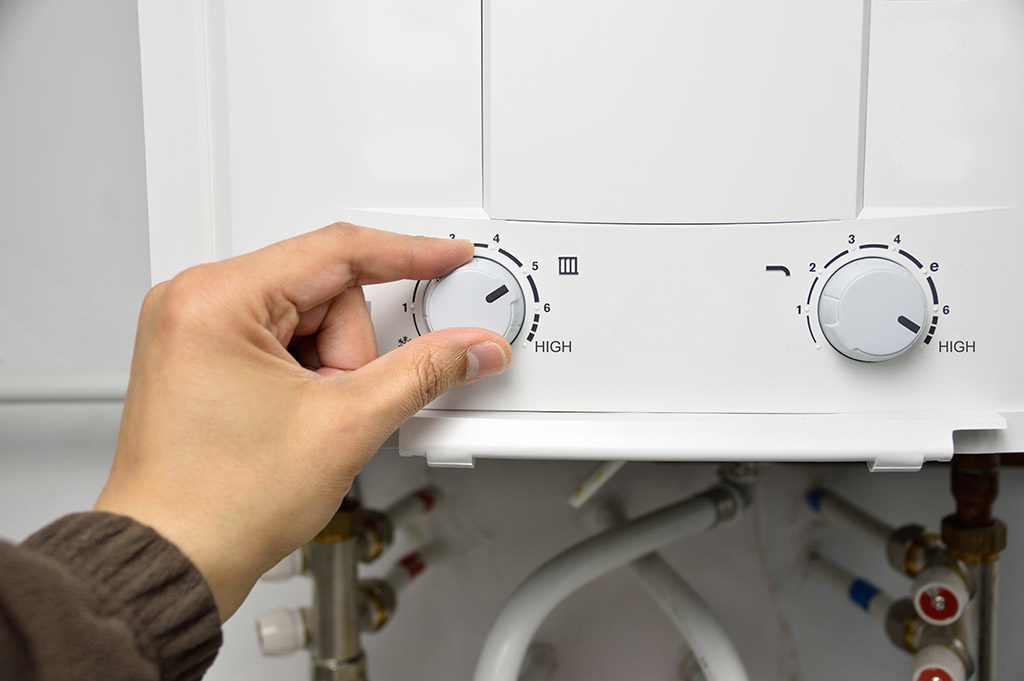How do you really feel about Is Your Water Heater Leaking??

A hot water heater is just one of one of the most important basic appliances that can be discovered in a home. With hot water heater, you don't require to experience the stress of heating water by hand whenever there is a need to wash, do the laundry, or the meals. Nonetheless, there is constantly a possibility that your water heater would certainly break down similar to the majority of mechanical devices.
It is very important to note any type of little breakdown and tackle it rapidly prior to things leave hand. The majority of times, your water heater starts to malfunction when there is a build-up of debris as a result of continuous use. As a safety measure, routine flushing of your hot water heater is advised to prevent sediment accumulation and avoid useful failing.
Usual hot water heater emergency situations as well as just how to manage them
Leaking hot water heater storage tank.
A leaking storage tank could be an indicator of corrosion. It might trigger damage to the floor, wall and also electrical tools around it. You might even be at threat of having your house flooded. In this circumstance, you should turn off your water heater, enable it to cool off, and also thoroughly seek the resource of the problem. At times, all you require to do is to tighten up a couple of screws or pipeline links in cases of small leakages. Yet if this does not function and also the leakage lingers, you may need to utilize the solutions of a technician for a suitable substitute.
Rising and fall water temperature.
Your water heater can start creating water of various temperature levels typically ice scalding or cold warm. In this circumstance, the first thing you do is to ensure that the temperature is readied to the desired degree. If after doing this, the water temperature maintains transforming throughout showers or various other activities, you could have a malfunctioning thermostat. There might be a need to change either the heating or the thermostat unit of your water heater.
Inadequate hot water
Dealing with a not enough supply of hot water can be frustrating. It might be that the hot water heater can't support the warm water need for your home. To deal with this issue, you could attempt to adjust your heating unit's temperature level dial and also await a few mins. You can ask for the help of an expert plumber if the problem lingers. You can update your water heating system to one with a bigger capability.
Stained or stinky water
You need to understand if the issue is from the water or the tank source when this takes place. You are particular that it is your water heater that is malfunctioning if there is no amusing scent when you run cold water. The stinky water can be caused by rust or the buildup of bacteria or debris in the hot water heater container. You can try flushing out your container or replacing the anode if the issue lingers as soon as you see this. The feature of the anode is to clean germs from your storage tank. Considering that the anode rod replacement requires a comprehensive expertise of your water heating system, you will certainly need the help of a specialist.
Verdict
Some homeowners neglect little caution and minor faults in their water heater system. This just causes more damages as well as a possible full failure of your home appliance. You ought to handle your water heater mistakes as quickly as they come up to prevent even more costs and unnecessary emergency problems.
With water heaters, you don't need to go through the stress of heating water by hand every time there is a demand to take a bath, do the laundry, or the dishes. Your water heating system might start producing water of various temperatures typically ice cold or hot warm. It may be that the water heating system can't sustain the hot water need for your apartment or condo. If there is no amusing smell when you run cool water, then you are particular that it is your water heating unit that is damaged. The smelly water can be created by rust or the build-up of microorganisms or sediments in the water heating system container.
Water Heater Burst: Why This Happens And What To Do Next
Water Heater Explosion Warning Signs
Since storage water heaters are made of metal and store large volumes of heated water, they carry an increased risk of leaking or even exploding as they begin to rust at the fittings and seams over time. If the thermostat controlling the water temperature within the tank is faulty, or if mineral buildup inside the water heater prevents the thermostat from sensing the water’s temperature correctly, the water could become overheated. This will expand its volume within the tank, causing it to press at the tank’s fittings and seams. If these fittings and seams are rusted or corroded, the pressure could result in a leak or even an explosion.
Here are some risk factors and warning signs of an increased risk of water heater leak or explosion:
Your water heater is more than 10 years old. Your water heater makes clanking, banging or rumbling noises as it heats up, indicating that sediment has built up and hardened inside the tank. There is visible rust on the outside of the water heater, especially located at the pipe fittings or the seams that run down the tank. There is rusty water coming from your water heater, indicating that there may be rust building up inside. Your water heater is leaking, which could indicate either a crack somewhere in the tank or a malfunctioning temperature-and-pressure (T&P) relief valve. What To Do When Water Heater Leaks
If you find water dripping or seeping out of your water heater, or pooling around it, it means your water heater is leaking. If you find a leak, it may be best to call a plumbing professional to diagnose the problem and determine how best to handle it. If you choose to tackle it on your own, there are a few things you can do.
TURN OFF THE POWER
Next, shut off the power to the hot water tank at your home’s electrical breaker box. If you don’t shut off the power, the heating elements within the tank could continue to stay hot, which could pose a fire risk.
If you have a gas-powered water heater, you’ll also need to shut off the gas line leading into the tank.
FIND THE LEAK
Now it’s time to determine where the leak is coming from. Likely locations are the T&P valve, the drain valve or one of the pipes or fittings that feed into the top of the tank. If you see any rust or corrosion on the outside of your water heater’s tank, pipes or fittings, these could also be the source of the leak.
REPAIR THE LEAK
Once you determine the source of your water heater leak, you’ll have a better idea of what steps you need to take to fix the problem. It may be a simple fix—such as using a wrench to tighten fittings or replacing the T&P valve—but it may be something more complicated. You may even need to drain the tank, remove the water heater and install a new one.
https://www.abchomeandcommercial.com/blog/water-heater-burst/

We hope you enjoyed our section on Is Your Water Heater Leaking?. Thanks so much for finding the time to read through our piece. Sharing is caring. Helping people is fun. I appreciate reading our article about Common Hot Water Heater Problems.
Toilet overflow? Dial!